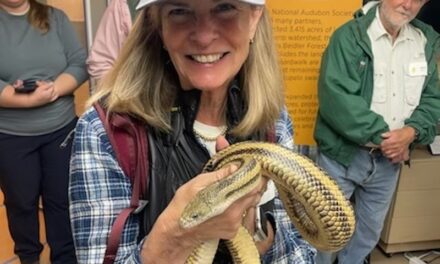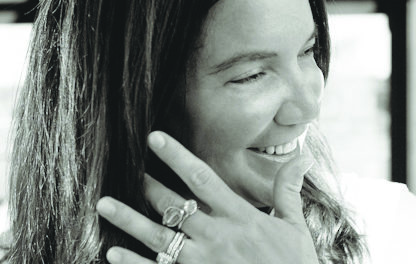Last Thursday I messaged my sister in Charleston, saying, “The Murdaugh trial is ruining my Film Festival.” Like me, she works from home, where it’s been all too easy to become distracted by (okay, obsessed with) the trial – thanks, courttv.com – and I knew she’d feel my pain.
As a columnist, I’ve been avoiding the Murdaugh saga like the plague. It’s just too close to home. I don’t like writing about people I might run into at the grocery store. Or, in this case, at church. (John Marvin, Liz, and their kids go to mine.) I have no wish to inflict any more pain on this family that has already suffered so much.
But as person after person asked me about the trial during the Beaufort International Film Festival last week – locals and visitors alike – and I saw folks walking around USCB in AirPods listening to it – like I was – I began to wonder if it wasn’t a dereliction of duty on my part not to offer some sort of commentary.
To my mind, nobody has written more compellingly about the Murdaugh case than award-winning journalist and podcaster Liz Farrell, who’s been our special correspondent over at The Island News throughout the trial. Liz writes from a place of deep knowledge and – as she, herself, admits – deep bias. As cohost of the Murdaugh Murders Podcast, she has been digging into the sordid, secretive world of Alex Murdaugh for a long time now, and much of what the country has learned about him over the past few weeks was already well-known to us podcast fanatics. Thanks to Liz and Mandy Matney, we went into this trial with a distinct point of view.
In Liz’s column last week, she described a photograph from the courthouse that she’d seen that day:
“In it, Alex Murdaugh — guarded by a deputy — is walking past his adult son, Buster, during a break in Buster’s testimony Tuesday morning.
“Alex is presumably being taken to a restroom.
“Buster is standing by the court reporter, his hands deep in his pockets, his chin at his chest.
“As Alex passes by, he reaches out his hand and seizes this opportunity of sudden proximity to pat Buster on the backside.”
The rest of the column is an analysis of that photo and all its potential interpretations. For Liz, Buster “gave off the appearance of a beaten down dog wanting to please his master. The photo was him getting his reward. His treat. Good boy.”
“But that’s just me,” she acknowledges. “That’s my take on what I saw, based on my particular biases, formed by four years of research and interviews and unhealthy immersion, if we’re being honest.”
Other people – with different biases and different immersion levels – might have seen something entirely different in the photo. Maybe something unremarkable. Maybe even something tender or heartbreaking.
Liz, who has been on the scene in Walterboro, says that the trial has been full of such moments – moments that open themselves to interpretation, demonstrating the “self-sorting nature of humans, the preternatural need to be right about something, the desire to be part of a team.”
Those of you who read this page regularly might have noticed that this phenomenon is a wee obsession of mine. To put it mildly.
And you don’t have to be in the courtroom to witness it in action. Just find yourself a chatroom – a Facebook group will do – and you’ll see the self-sorting nature of humans on full display.
I’m a lurker in a group called “Murdaugh Murders: Rational Case Discussion.” That name seems more ironic by the day, for there is little that is rational about this case, or about the discussions that take place in this group.
To put it more clearly, plenty of the comments are rational. What’s irrational is the range of perspectives on display – the wide array of interpretations and speculations all based on the same trial.
What we’re watching is exactly the same, but what we’re seeing is very different. It’s crazy.
Things got even crazier last week when Alex Murdaugh shocked us all by taking the stand in his own defense. My sister texted me a heads up just as I was about to leave for the university. I’d been up since before dawn, working frantically so I could spend most of my day at the film festival, but now I wasn’t so sure I wanted to go. Suddenly, the only screen I fancied looking at was my computer screen, streaming Court TV.
But I snapped myself out of it. Sort of. I popped in my AirPods and headed to USCB, listening to the trial on my phone all the way there. I entered the lobby still in my pods, barely said hello to anybody – like some beanie-wearing GenZ’er on the subway – and didn’t stop listening ‘til I’d sat down in the dark auditorium. It took me a while to ease into the first film, a short documentary about a whirligig maker in Wilson, NC. (Alex Murdaugh was on the stand and I was watching whirligigs?!) But it was a charming film and, soon enough, I’d pulled my mind out of Murdaugh World and immersed myself in art. It felt good.
Still, after lunch I went back home to “work” – or that’s what I told everybody, anyway. I did get a few things done – I can multitask – but I also watched the trial. And then I went to the “rational” Facebook group to do some more lurking.
Opinions were all over the place there. Some people who’d been 100% certain of Alex’s guilt weren’t so sure anymore. Others were doubling down. Some had seen a sincere and broken man on that stand, finally telling the truth, maybe for the first time in his life, and wracked with authentic grief. Others had seen a callous, evil mastermind – probably a sociopath – shedding fake tears, manipulating the jury, and playing the prosecutor for a fool.
And about that prosecutor. Some saw Creighton Waters as a bitter little man who’d been nursing a grudge against the more “successful” Murdaugh since their law school days at Carolina, a man so petty and belligerent he was in danger of alienating the jury. Others saw a sharp, tenacious bulldog who was running rings around Alex, breaking him down, and would certainly ensure a guilty verdict.
Y’all don’t even need to know what I saw during Alex Murdaugh’s testimony. An incurable softie who regularly cries over episodes of Blue Bloods and FBI, I have learned not to trust my emotional reactions as any kind of truth barometer. If I had a dollar for every time my husband has said to me, “You know these characters aren’t real people, right?” as I wept over their fictional plights, I’d be a wealthy woman.
(Incidentally, I don’t see what “being real people” has to do with anything, but that’s for another column.)
The point is, I’m very much like my sister, who said to me last week, “I want Alex to be innocent so bad . . . but I just don’t know.”
I have been studying and writing about bias for a very long time now, and I recognize my own. I am now entertaining the possibility that Alex is innocent because I want Alex to be innocent. Because I can hardly bear to live in a world where men brutally murder their beloved sons. Their wives? Sadly, I can get my head around that. But their children? It’s almost impossible for me to fathom.
I don’t want to fathom it.
I am finishing this column on Sunday morning and will commit it to print on Monday around noon. We may have a verdict by the time you read it.
The jury is made up of biased humans just like me and Liz Farrell and the people in my “rational” Facebook discussion group.
Anything could happen.







